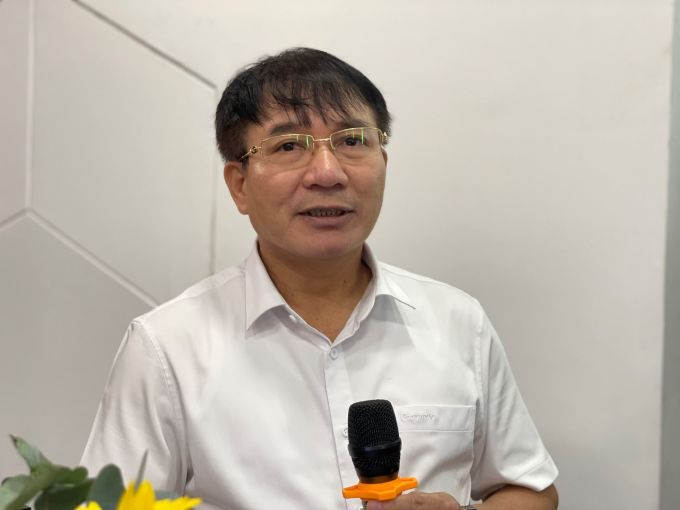The KC08 program management board prioritizes research on the application of technology for warning and managing risks caused by natural disasters.
This orientation was outlined by Professor Tran Dinh Hoa, Head of the Science and Technology Research Program for Environmental Protection, Disaster Prevention and Climate Change Adaptation (KC08), at the conference on orientation for scientific research topics in this field for the period 2021-2030, held on the morning of October 27th. The conference was organized by the Office of National Key Programs, Ministry of Science and Technology, in collaboration with the University of Technology (Vietnam National University Ho Chi Minh City).
According to Professor Hoa, Vietnam is among the five countries most severely affected by climate change, with 21 out of 22 recorded natural disasters being common, such as storms, floods, and landslides. The severity is increasing, becoming more unusual and exceeding historical levels in many regions across the country. He cited examples such as lowland cities like Ho Chi Minh City, Hanoi, and Da Nang, which are often heavily affected by flooding, but in recent years, highland areas like Lam Dong and Ha Giang have also experienced this. "This places a heavy responsibility on scientists in researching, forecasting, and responding to climate change," Professor Hoa said.

Professor Tran Dinh Hoa, Head of the KC08 Program, shared research directions on the morning of October 27th. Photo: Ha An
In the upcoming phase of the KC08 program, one of the key objectives is to research, develop, and refine forecasting methods and procedures; and to apply integrated models and tools to forecast and warn of dangerous meteorological and hydrological phenomena. Research should propose technological solutions to help prevent, respond to, and mitigate natural disaster risks, encouraging the application of big data and advanced models... approaching world-class technologies.
Furthermore, the KC08 program prioritizes research and technology transfer in forecasting, monitoring, and supervising natural environmental factors such as soil, water, and air. Simultaneously, it proposes solutions to improve the efficiency of pollution management and control, and to restore and remediate environmental incidents. Research on efficient resource utilization, aiming towards circular economy, green economy, carbon market development, and related policy proposals are encouraged within the program.
Given its focus on applied research, according to Professor Hoa, the KC08 program aims for at least 80% of its tasks to have products that can be applied in practice by the end of the program, and 80% of the research results to be further studied and refined. The remaining 10% of the tasks are pilot production projects, helping to connect research with actual production activities.
Having participated in numerous research projects, Dr. Tran Quoc Cuong from the Institute of Geology, Vietnam Academy of Science and Technology, believes that scientists often encounter difficulties with administrative procedures and bidding processes. Therefore, when developing research proposals, scientists must carefully calculate chemical parameters and technical equipment to avoid future problems. He also hopes to receive support from management agencies in amending regulations regarding procedures to facilitate scientists.
According to Mr. Dao Ngoc Chien, Director of the Office of National Key Programs, Ministry of Science and Technology, in the new regulations on managing national-level science and technology tasks, the task contract template has been revised to gradually approach civil relations, in line with the principle of accepting risks. Accordingly, the contract includes a clause exempting scientists from civil liability in cases of force majeure, as defined in the Civil Code. This creates maximum conditions for the lead agency and scientists to feel more secure in their research and accept risks in cases of force majeure.
Ha An
Source link


![[Photo] Prime Minister Pham Minh Chinh attends the Conference on the Implementation of Tasks for 2026 of the Industry and Trade Sector](/_next/image?url=https%3A%2F%2Fvphoto.vietnam.vn%2Fthumb%2F1200x675%2Fvietnam%2Fresource%2FIMAGE%2F2025%2F12%2F19%2F1766159500458_ndo_br_shared31-jpg.webp&w=3840&q=75)














































































































Comment (0)